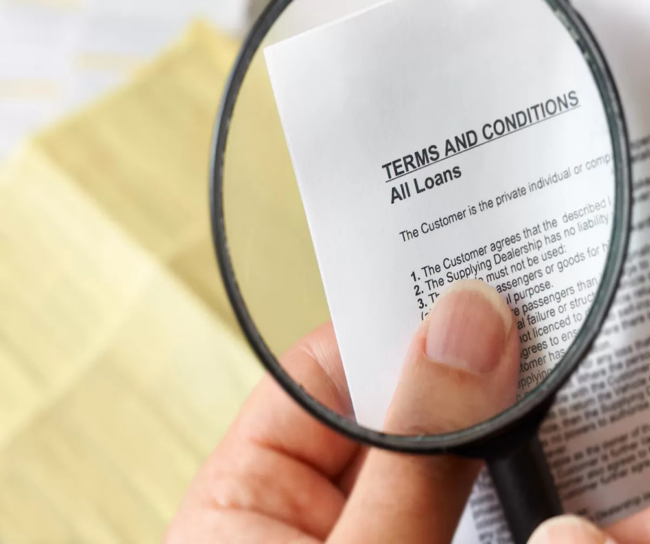The concept of vacation ownership is based on the notion that owning a functional real estate interest or timeshare may be a more cost-effective opti
The concept of vacation ownership is based on the notion that owning a functional real estate interest or timeshare may be a more cost-effective option than repeatedly paying for hotel rooms if you take annual or frequent vacations. The traditional thinking is, why keep saving for hotel rooms every year when you can own a piece of paradise?
However, the reality of timeshare ownership has not lived up to this ideal. Even deeded timeshares and fixed-week fractional interests come with various annual fees, such as maintenance fees, property taxes, HOA fees, and special assessments, which can make owning a timeshare a financial burden. The current trend of vacation clubs with point systems, exchange company fees, and complicated reservation systems has made the whole process even more complicated and expensive. Unfortunately, timeshare sales presentations often fail to reveal the true cost of owning a timeshare, and you may not realize the full extent of the financial obligations until you receive your first set of bills.
This article aims to help readers understand the real cost of timeshare ownership by breaking down the different expenses involved, including the purchase price, mortgage, tax payments, and special assessments. In many cases, buying a timeshare may not be a sound personal finance decision.
Top of Form
The Costs That Come With a Timeshare
Even experienced buyers may be surprised to discover that a timeshare is not a good investment when they factor in all the costs. Therefore, having knowledge about the expenses is essential to avoid being exploited by timeshare companies.
In this article, we will explore the various expenses that accompany timeshare ownership.
The Timeshare Purchase and Mortgage

The primary expense that individuals consider when thinking about buying a timeshare is the initial payment made to the developer for the timeshare interest. This figure can fluctuate depending on the type of timeshare, whether it is a fixed- or floating-week deeded timeshare or a points-based vacation club like Hilton Grand Vacations Max, Marriott, or Disney Vacation Club.
Regardless of the type, the higher the purchase amount, the more significant the price tag. According to the American Resort Development Association (ARDA), the average price of a timeshare interval is over $24,000, with some timeshares costing over $100,000.
For the purpose of this example, let’s assume a round purchase price of $30,000, with a $3,000 down payment. Thus, you would need to obtain a $27,000 mortgage to cover the remaining balance. Unlike a home loan, however, mortgage interest rates for timeshares can be quite high, reaching up to 20% in some instances. In this case, let’s assume a standard interest rate of 15.9% for ten years.
To calculate the complete expenses, you must combine the principal amount ($27,000) with the mortgage interest you’ll be paying for ten years. As a result, your $30,000 timeshare would ultimately cost you $54,072.51 over ten years. This means that you will pay nearly as much in interest ($27,072.51) as in principal over 120 payments.
If this figure seems startling, it’s worth noting that we haven’t yet discussed any of the other associated fees.
Annual Timeshare Maintenance Fees
According to the American Resort Development Association’s (ARDA) 2019 research, maintenance fees can range from as low as $640 annually for a small studio timeshare to almost $1,300 for a three-bedroom unit. Let’s assume a maintenance fee of $1,000 annually for seven nights of timeshare usage in our hypothetical scenario.
It’s important to note, however, that this fee won’t remain at $1,000 for long. Maintenance fees, like many other costs, are affected by inflation. Let’s assume an inflation rate of 8.5% annually for our hypothetical scenario. This means that over ten years, you’ll pay $17,096 in maintenance fees alone. In 20 years, the amount will be a staggering $53,489!
Because fees can vary by company, the amount you may be paying in 20 years can vary significantly. You can estimate the inflation of your specific fees using the Maintenance Fee Calculator by Centerstone Group, which takes into account the current U.S. inflation rate.
Timeshare Property Taxes, Homeowners Association (HOA) Fees, and Special Assessments
Owning a timeshare also entails legal taxes, obligations, and regular payments that you are required to pay. Failure to make these payments may result in foreclosure. Property taxes vary depending on the state where the timeshare is located and the size of the property. For this example, let’s assume a yearly property tax of $500, resulting in a payment of $5,000 over 10 years and $10,000 over 20 years.
Another cost associated with timeshares is membership in the resort’s homeowner’s association (HOA), which covers the expenses for maintaining the resort’s amenities and common areas. On average, you can expect to pay around $400 per year for regular HOA fees. That’s $4,000 over 10 years and $8,000 over 20 years.
However, if there is a natural disaster or the resort needs special renovations, the regular HOA fees may not cover these expenses. In such cases, the HOA may charge you a special assessment fee. These fees can be unpredictable, and for this example, let’s assume a $500 special assessment fee every 10 years, resulting in a total payment of $1,000 over 20 years.
Fees for Using, Reserving, and Exchanging Your Timeshare

Owning a timeshare involves legal taxes and responsibilities, as well as monthly and annual fees that must be paid as required by law. If you fail to pay these amounts, your timeshare may face foreclosure. Property taxes are determined by the state and size of your timeshare interest, with a hypothetical amount of $500 per year assumed here. Over 10 years, this amounts to $5,000, and over 20 years, it amounts to $10,000. In addition, an HOA fee of approximately $400 per year is charged for resort maintenance. That comes to $4,000 after 10 years and $8,000 after 20 years. Special assessments, which are difficult to predict, may be charged for natural disasters, repairs, or renovations, with a hypothetical amount of $500 charged every 10 years for a total of $1,000 after 20 years.
But there are more costs to consider. The above expenses only allow you to own the timeshare, not use it. Timeshare companies have many hidden fees that may not be disclosed until it’s too late. To book a stay, you will need to make a reservation and pay a fee of around $50 per stay. Over 10 years, this amounts to $500, and over 20 years, it amounts to $1,000. If you lend your timeshare to a friend, a guest certificate will cost $100 each. After 10 years, this comes to $300, and after 20 years, it comes to $600.
If you decide to join a timeshare exchange company like Interval International or RCI, you’ll pay around $65 per year. After 10 years, this comes to $650, and after 20 years, it amounts to an additional $1,300. When you actually book a stay through an exchange company, you’ll also have to pay a reservation fee, which is around $270 for a seven-day stay. Over 10 years, this amounts to $2,700, and over 20 years, it amounts to $5,400.
Furthermore, timeshare resorts have many fees for specific situations, such as listing your timeshare for resale or using it as a rental. These fees vary and are not easy to plan for. If you want to use your timeshare to make money, expect to pay extra for that opportunity.
So, What Is The Total Cost of a Timeshare?
Once you factor in all these costs, the total expenses for owning a timeshare become clear. It is worth noting that some of these estimates may even be understated. For a $30,000 timeshare unit, the total cost for 10 years is $84,818.51.
Assuming you get to spend seven nights at your timeshare every year, which is not often the case, you would end up paying $1,211.69 per night for your timeshare unit. If you don’t use all your nights, the cost per night would be even higher.
After 20 years, the total cost of owning a timeshare would be $126,861.51, which is more than four times the original purchase price. Even if you manage to use all your nights for 20 years, which is rare, you would still be spending $906.15 per night. This may be slightly cheaper than the 10-year scenario, but it is still significantly more expensive than a nice hotel or resort.
Tired of Paying Through the Nose? Centerstone Group Can Help
Reviewing such expenses may provide some insight into why numerous timeshare owners are seeking ways to terminate their contracts. This is where Centerstone Group comes in to assist. We are a leading timeshare exit company, committed to ensuring that our clients achieve legal and ethical timeshare exits. Our years of experience enable us to find effective exit solutions for our clients, using techniques such as contract cancellation, our unique pressure campaigns, or leveraging the expertise of our legal partners.
If you are a timeshare owner, and you want to terminate your contract, we would be honored to offer our assistance. Our company boasts an A+ rating with the Better Business Bureau (BBB), and we have numerous satisfied customers who can attest to our exceptional services. You can contact us today for a complimentary consultation and case review.

COMMENTS